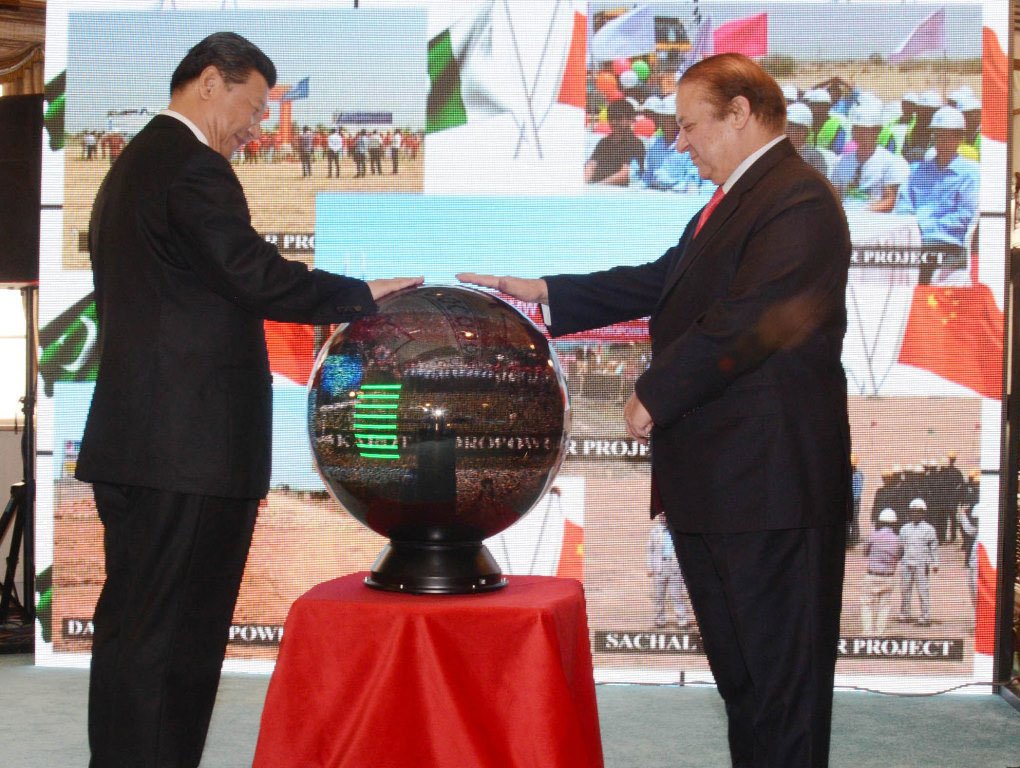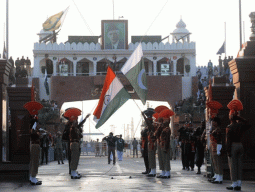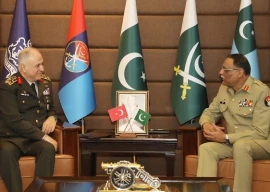
China on Friday defended its $46 billion economic corridor in Pakistan which the Indian Prime Minister Narendra Modi had termed ‘unacceptable’ during his visit to China last month.
At the same instance, Beijing hit out at India for its oil exploration bid in South China Sea and has also rejected Modi’s push to clarify the Line of Actual Control (LAC).
Read: China-Pakistan Economic Corridor 'unacceptable', Modi tells China
Deputy Director General of the Asian Affairs at the Foreign Ministry Huang Xilian clarified that China opposed India’s oil exploration bid in the South China Sea because it is a disputed area, at the same time, he said, holds China-Pakistan Economic Corridor project through Gilgit Baltistan in high esteem.
“Both India and China advocate freedom of navigation in the South China Sea and there are no differences over it,” Huang said, adding that India will react if a Chinese company goes to a disputed area with a South Asian neighbour, referring to the state-owned ONGC participating in oil exploration in the wells claimed by Vietnam.
Read: Modi to ramp up help for Indian Ocean nations to counter China influence
Speaking about the economic corridor, the Chinese official said, "We know the concern of the Indian side and those projects are not political projects. They are all for livelihood of people. There is no commercial action by China in that part of the region," Huang said when asked why the same principle cannot be applied to Chinese investments in the China-Pakistan Economic Corridor that passes through G-B.
"There is this kind of action for many years. We do not side with any party on the issue of the territory. We have been advocating that the disputes should be solved through concerned parties through peaceful means. The kind of commercial activities do not affect the position of China on the claimants of the territory," he said.
Read: China proposes joint mining of Indian Ocean ahead of Modi's visit to Beijing
ONGC has been awarded oil exploration contracts by Vietnam, and China has, in the past, voiced objections to it. India has defended the projects saying that they are purely commercial projects and need not be politicised.

DATA COMPILED: SHAHBAZ RANA & FAREEHA MUFTI
China claims sovereignty over almost all of South China Sea and Vietnam, the Philippines, Malaysia, Brunei and Taiwan object to that.
Read: Indian Ocean to become India’s ocean: report
"I am not talking which one is good and which one is bad. I tried to explain our position on this. We know your concern. We tried to communicate to your side our position," Huang said.
Pakistan rejected India’s statement claiming the entire Jammu and Kashmir, including Gilgit and Baltistan, are an integral part of India, saying the country is unlawfully occupying territories in the region.
Read: India suppresses Kashmiri Muslims, holds sham elections at gun-point: FO
“Kashmir is an internationally recognised dispute, pending final settlement through a free and impartial plebiscite under the UN auspices, as enshrined in numerous UN Resolutions,” Khalillah said.
“Under these resolutions no material change is allowed, yet India, in complete violation of these resolutions, calls it a state of the union,” he added.
Line of Actual Control
Speaking about the LAC, authorities in Beijing said that they prefer a pact with India on a code of conduct to maintain peace along the border rather than clarification of the LAC, earlier proposed by Modi.
Outlining China's first public reaction to the Indian premier’s proposal, Huang said both sides should try and reach an agreement on the code of conduct.
Read: India, China agree to foster peace on disputed border
"If we find that the clarification of the LAC is a building block, then we should go ahead. But if we find that it is a stumbling block, it could complicate the situation further. We have to be careful," Huang said.
This article originally appeared in the Press Trust of India.




















































COMMENTS (10)
Comments are moderated and generally will be posted if they are on-topic and not abusive.
For more information, please see our Comments FAQ